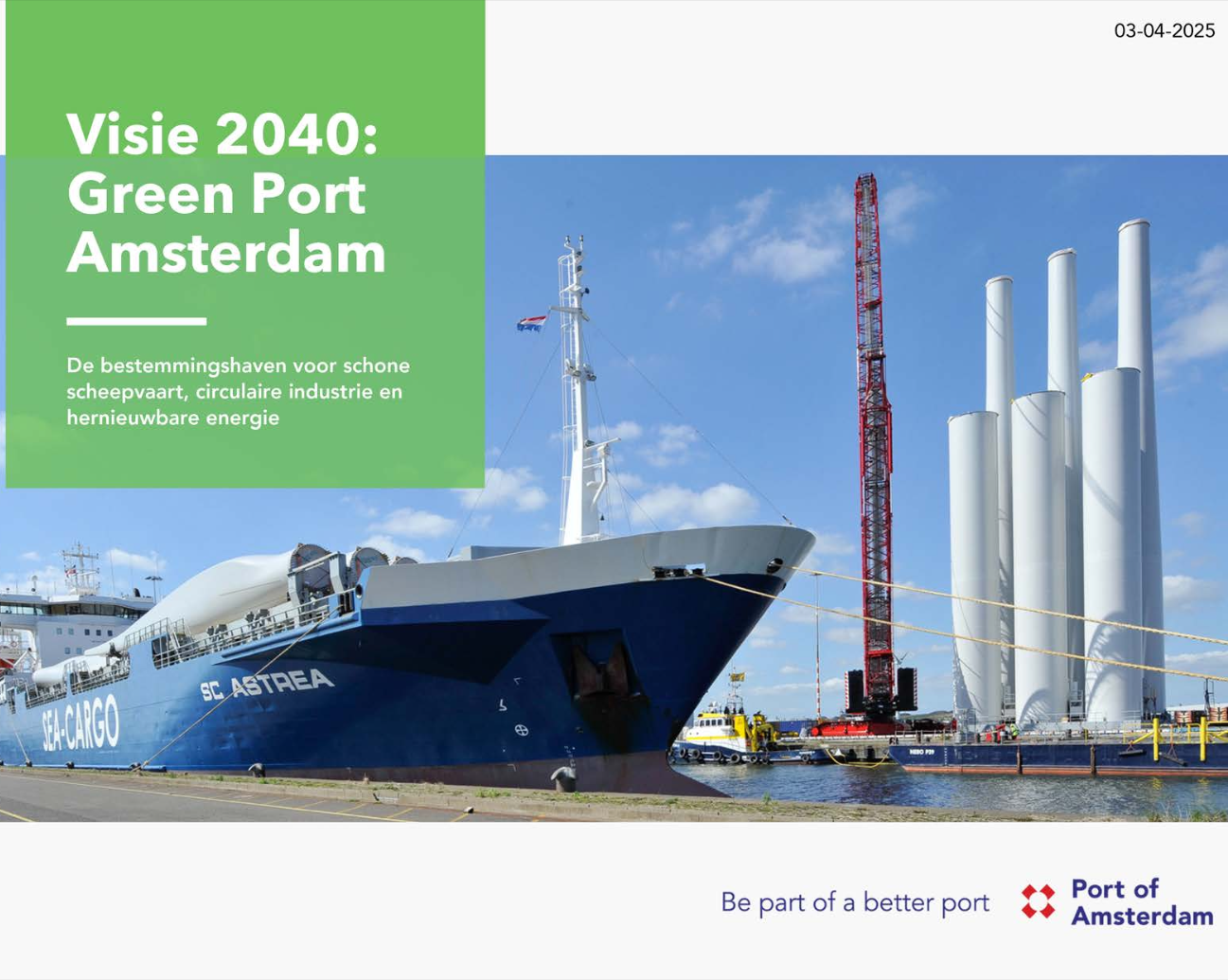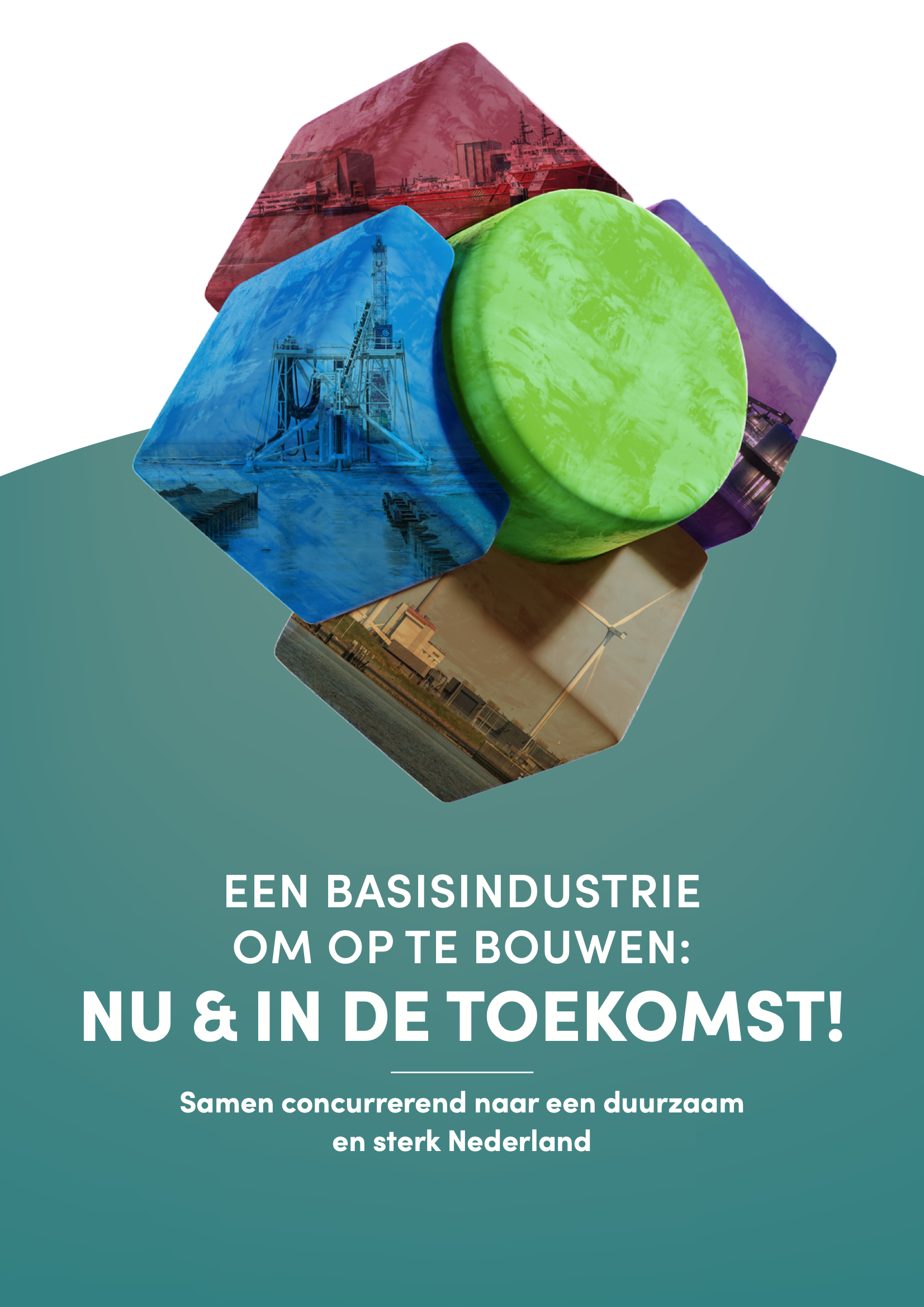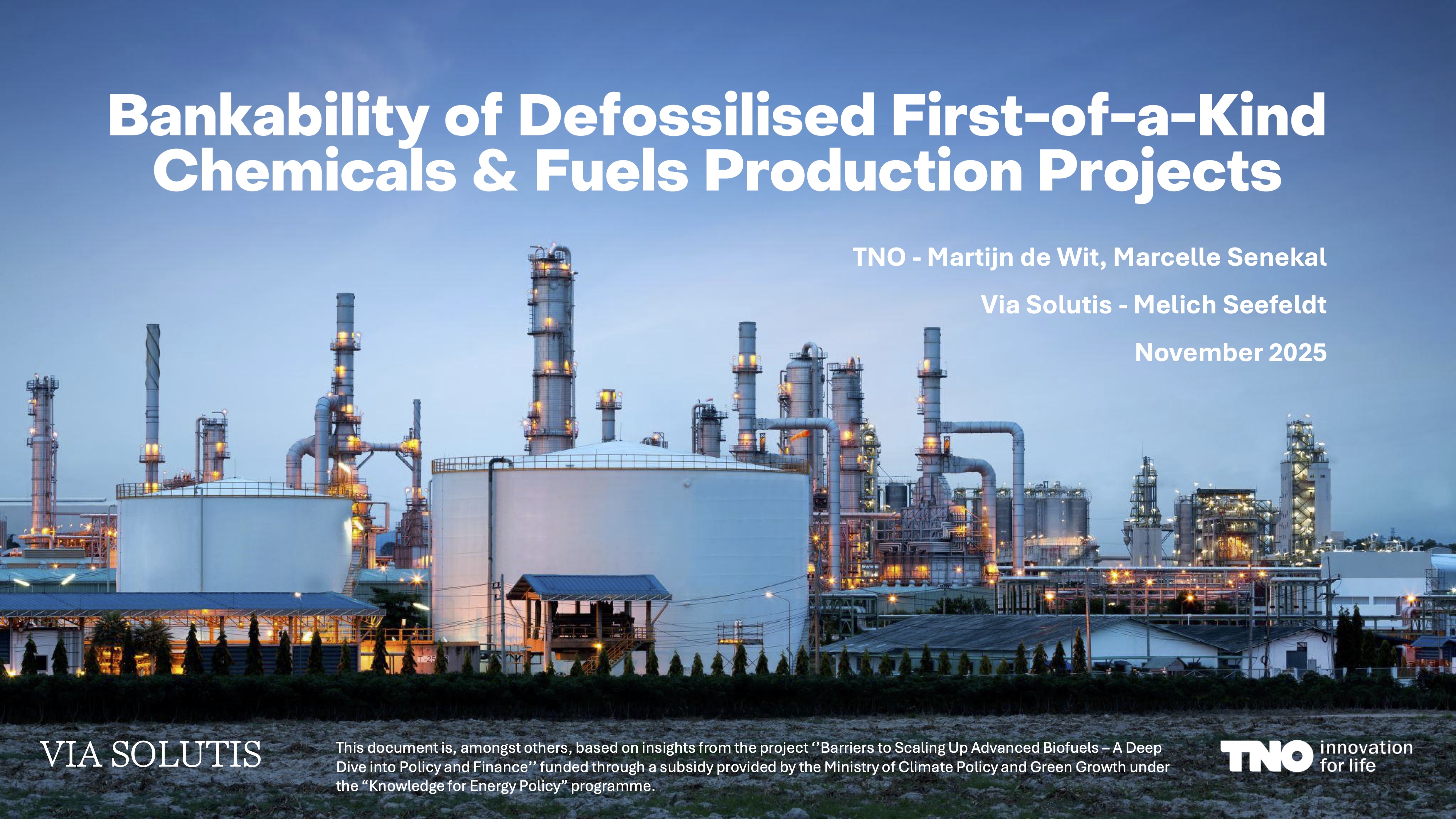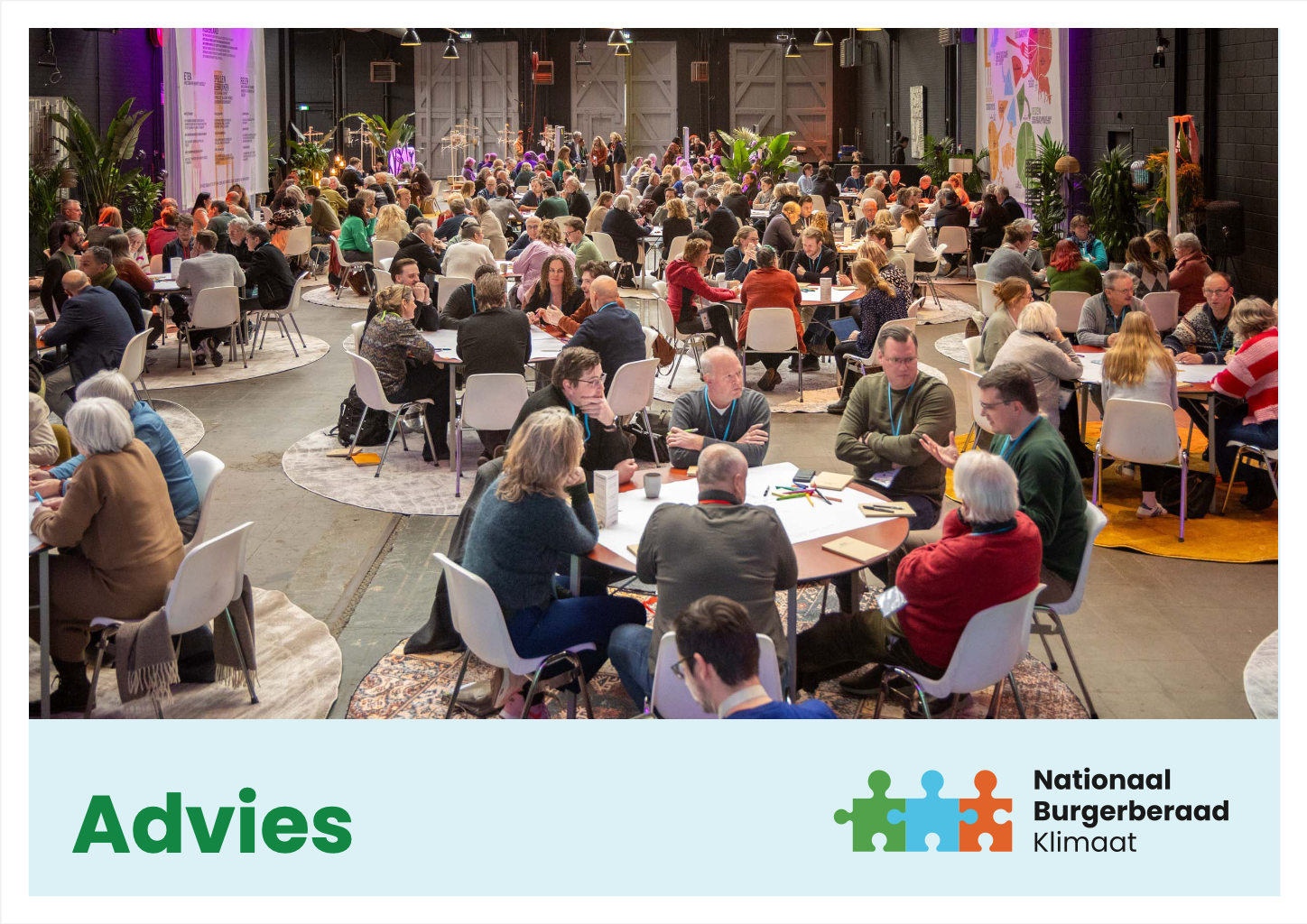Filter opties

Rapport
EC DG Research: Mobilization of Industrial Capacity Building for Advanced Biofuels | 2026
A new European Commission report provides insights on how advanced biofuel production can be scaled to meet EU climate targets. From now to 2030, a large increase in biofuel production capacity based on Annex IX feedstocks is required to fulfill the RED targets.
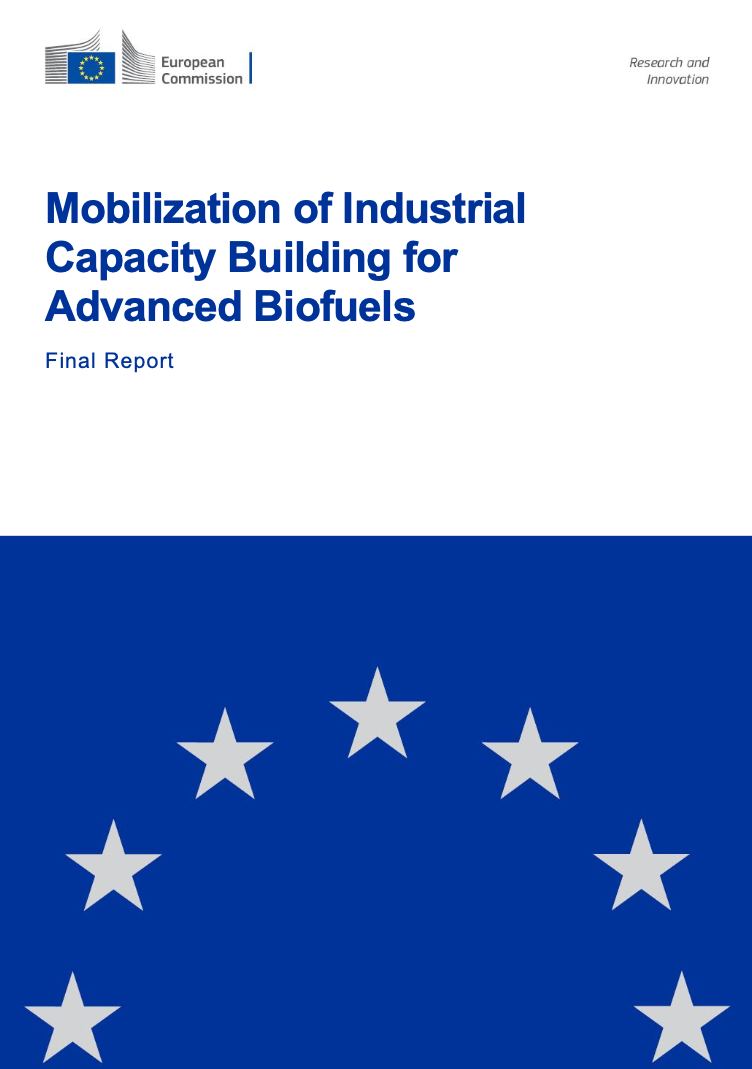
Backovsky et al: Tracking cellulosic ethanol: commercialization and regional insights | 2025
Drawing on 15 years of monitoring the cellulosic ethanol industry, this study examines the underlying causes and evaluate the status of demonstration plants recorded in the IEA database.

IEA: India Bioenergy Market Report | 2026
IEA published a report on bioenergy market in India with liquid and gaseous biofuels expected to be one of the fastest growing markets. This growth have been driven by significant biofeedstock potential and supportive policies.

PHB report: Digital transparency in POME-biofuel supply chains | 2026
Platform Renewable Fuels was commissioned by RVO for a project on the use of digital transparency solutions applied to the specific case of palm oil mill effluent (POME) supply chains.

Rijksoverheid: Visie op duurzame koolstof in de chemische industrie | 2025
Hoe een klimaatneutrale en circulaire koolstofchemie eruitziet, alsook de weg daarnaartoe, is nog onduidelijk. Daarom zijn deze visie en transitiepad voor het verduurzamen van het koolstofgebruik in de chemische industrie opgesteld.

Non-paper by The Netherlands, Ireland, Portugal, Luxembourg: Demand creation for clean products in the steel and chemical industry | 2025
Following consultation with stakeholders, such as key industry partners, the Netherlands, Ireland,Portugal, Luxembourg propose a set of targeted measures to strengthen demand creation for clean products in the steel and chemical industry.

Millinger et al: Diversity of biomass usage pathways to achieve emissions targets in the European energy system | 2024
The paper investigates the energy system in Europe associated with the different sector and explores near-optimal solutions for achieving emissions targets. The main finding: provision of biogenic carbon has higher value than bioenergy provision.
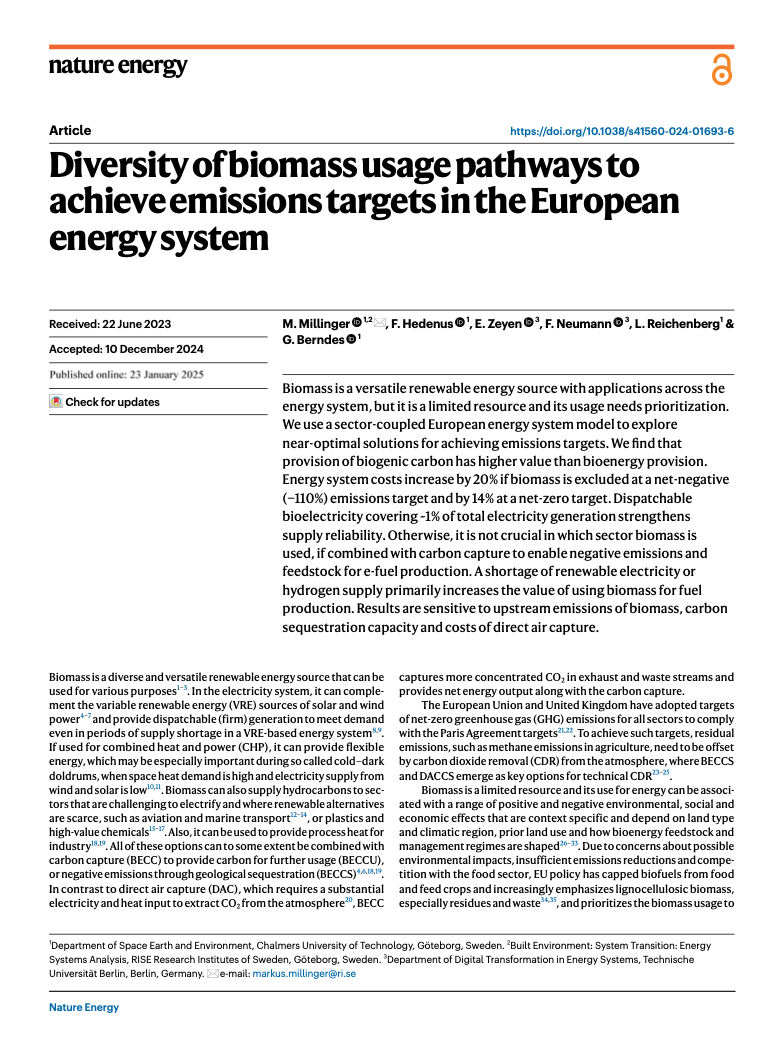
Industrietafel Noord-Nederland: Biogrondstoffen agenda Noord-Nederland | 2022
Producten maken vanuit hernieuwbare grondstoffen met duurzame energie. Dat is het doel van de Noord-Nederlandse procesindustrie. Om dit doel op een zo kort mogelijke termijn te bereiken, moet een verdere omschakeling gemaakt worden van fossiel naar biobased, naar hogere toegevoeg

De toekomst van duurzame koolstofchemie in Nederland | 2025
In dit onafhankelijke expertadvies geven experts hun visie op de verduurzaming van de koolstofchemie van de toekomst en legt daarbij de focus op de belangrijkste uitdagingen en implicaties waarmee er op de route daarnaartoe de komende jaren rekening zou moeten worden gehouden.

New Strategic Framework for a competitive and sustainable EU Bioeconomy
The European Commission adopted a new Bioeconomy strategy for a competitive and sustainable European Union charting a way forward to build a resilient, competitive and nature positive European bioeconomy.
Retrospective on joint workshop with German Platform InnoFuels and ETIP Bioenergy: Renewable fuels for a resilient society
The online workshop focused on the central question of how renewable fuels can enhance the resilience of Europe’s energy supply, using technologies that are already commercially available, scalable, and ready for immediate deployment.
Concawe: Sustainable biofeedstock supply chains for advanced biofuels in Europe towards 2050 | 2025
This report, commissioned by Concawe in collaboration with Utrecht University and TNO, presents a comprehensive, cost-optimised analysis of sustainable biofeedstock supply chains for advanced biofuel production across the EU-27 + UK for 2030 and 2050.
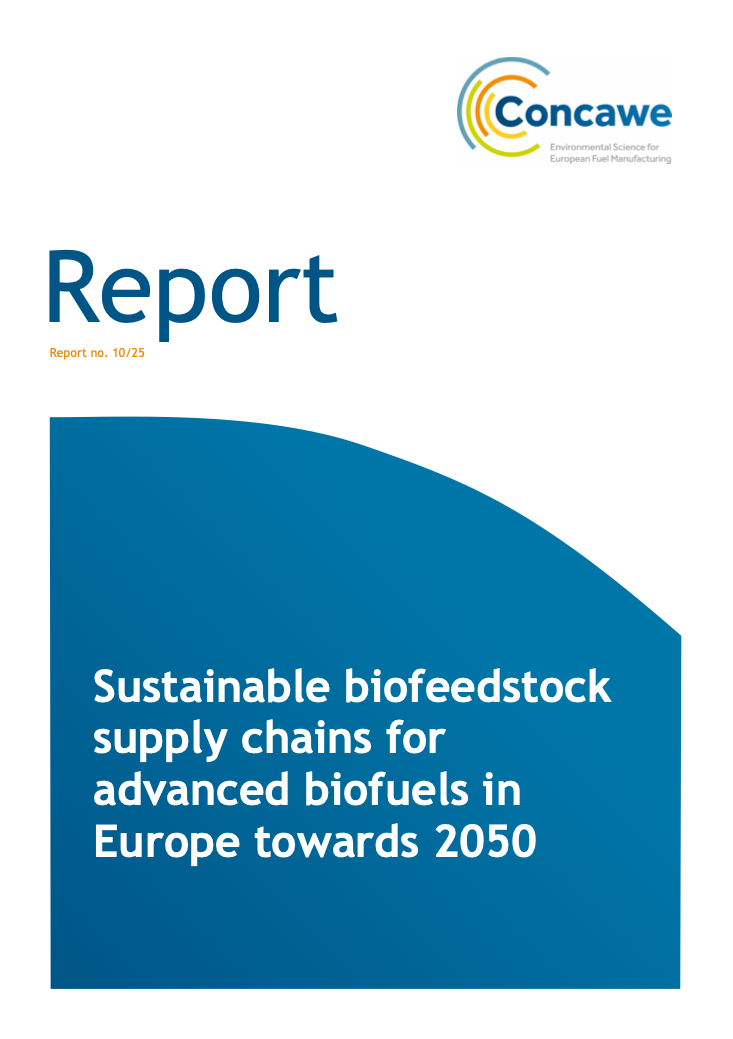
Retrospective on workshop: digital trust and POME-biofuel supply chains | 2025
Improving transparency and digital trust have been core themes of the Dutch Platform Renewable Fuels is working on. On Monday October 6, the Platform organised an online workshop to discuss digital trust in the context of POME-biofuels supply chains.

